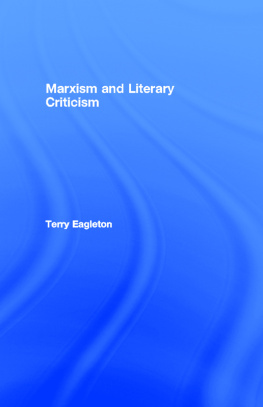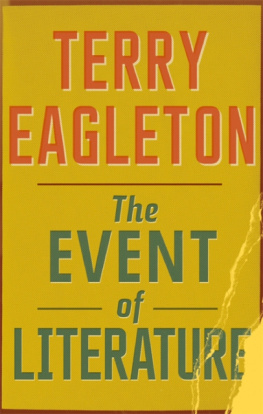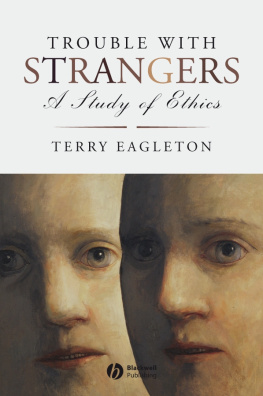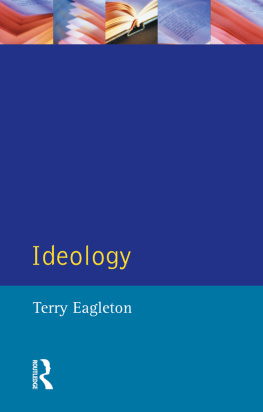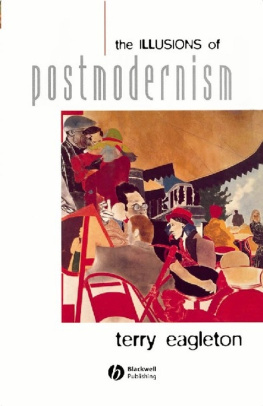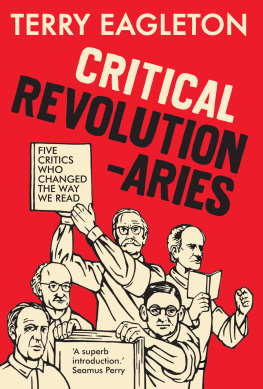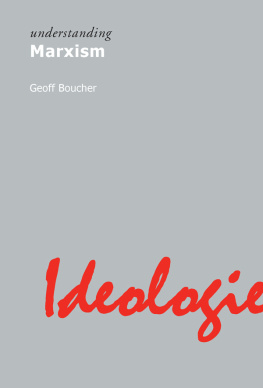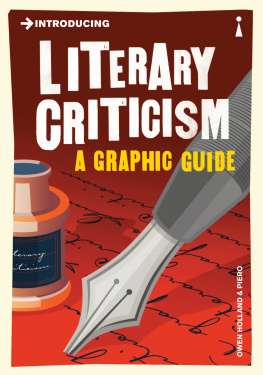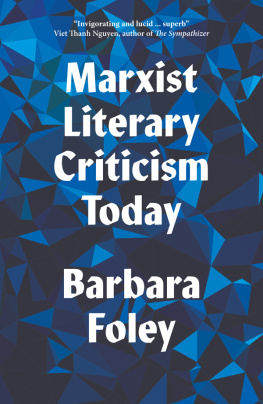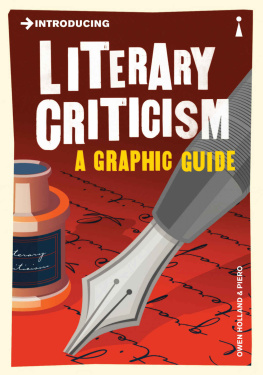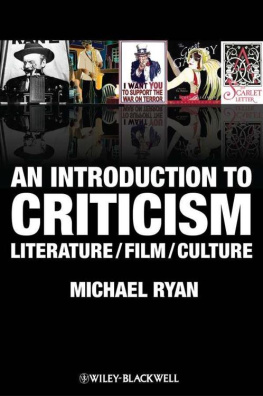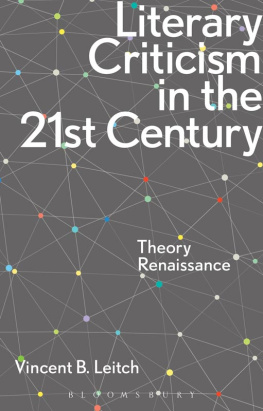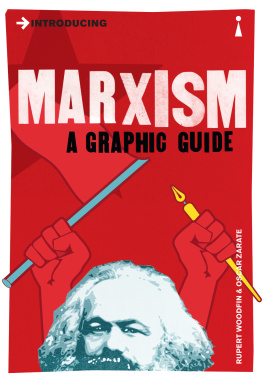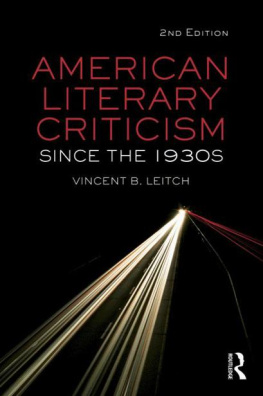Eagleton - Marxism and Literary Criticism
Here you can read online Eagleton - Marxism and Literary Criticism full text of the book (entire story) in english for free. Download pdf and epub, get meaning, cover and reviews about this ebook. year: 2002, publisher: Eagleton, Terry., Taylor & Francis, genre: Art. Description of the work, (preface) as well as reviews are available. Best literature library LitArk.com created for fans of good reading and offers a wide selection of genres:
Romance novel
Science fiction
Adventure
Detective
Science
History
Home and family
Prose
Art
Politics
Computer
Non-fiction
Religion
Business
Children
Humor
Choose a favorite category and find really read worthwhile books. Enjoy immersion in the world of imagination, feel the emotions of the characters or learn something new for yourself, make an fascinating discovery.
Marxism and Literary Criticism: summary, description and annotation
We offer to read an annotation, description, summary or preface (depends on what the author of the book "Marxism and Literary Criticism" wrote himself). If you haven't found the necessary information about the book — write in the comments, we will try to find it.
Marxism and Literary Criticism — read online for free the complete book (whole text) full work
Below is the text of the book, divided by pages. System saving the place of the last page read, allows you to conveniently read the book "Marxism and Literary Criticism" online for free, without having to search again every time where you left off. Put a bookmark, and you can go to the page where you finished reading at any time.
Font size:
Interval:
Bookmark:
Marxism and Literary Criticism
Marxism and Literary Criticism
TERRY EAGLETON

First published in 1976 by
Methuen & Co. Ltd
This edition published in the
Taylor & Francis e-Library, 2006.
To purchase your own copy of this or any of Taylor & Francis
or Routledges collection of thousands of eBooks
please go to http://www.ebookstore.tandf.co.uk/.
1976 Terry Eagleton
ISBN 0-203-40779-2 Master e-book ISBN
ISBN 0-203-71603-5 (Adobe eReader Format)
ISBN 0-415-04583-5 (Print Edition)
All rights reserved. No part of this book may be reprinted or reproduced or utilized in any form or by any electronic, mechanical or other means, now known or hereafter invented, including photocopying and recording, or in any information storage or retrieval system, without permission in writing from the publishers.
Contents
Preface
Marxism is a highly complex subject, and that sector of it known as Marxist literary criticism is no less so. It would therefore be impossible in this short study to do more than broach a few basic issues and raise some fundamental questions. (The book is as short as it is, incidentally, because it was originally designed for a series of brief introductory studies.) The danger with books of this kind is that they risk boring those already familiar with the subject and puzzling those for whom it is entirely new. I make little claim to originality or comprehensiveness, but I have tried at least to be neither tedious nor mystifying. I have aimed to present the topic as clearly as possible, although this, given its difficulties, is not an easy task. I hope anyway that what difficulties there may be belong to the subject rather than to the presentation.
Marxist criticism analyses literature in terms of the historical conditions which produce it; and it needs, similarly, to be aware of its own historical conditions. To give an account of a Marxist critic like, say, Georg Lukcs without examining the historical factors which shape his criticism is clearly inadequate. The most valuable way of discussing Marxist criticism, then, would be an historical survey of it from Marx and Engels to the present day, charting the ways in which that criticism changes as the history in which it is rooted changes. This, however, has proved impossible for reasons of space. I have therefore chosen four central topics of Marxist criticism, and discussed various authors in the light of them; and although this means a good deal of compression and omission, it also suggests something of the coherence and continuity of the subject.
I have spoken of Marxism as a subject, and there is a real danger that books of this sort may contribute to precisely that kind of academicism. No doubt we shall soon see Marxist criticism comfortably wedged between Freudian and mythological approaches to literature, as yet one more stimulating academic approach, one more well-tilled field of inquiry for students to tramp. Before this happens, it is worth reminding ourselves of a simple fact. Marxism is a scientific theory of human societies and of the practice of transforming them; and what that means, rather more concretely, is that the narrative Marxism has to deliver is the story of the struggles of men and women to free themselves from certain forms of exploitation and oppression. There is nothing academic about those struggles, and we forget this at our cost.
The relevance to that struggle of a Marxist reading of Paradise Lost or Middlemarch is not immediately apparent. But if it is a mistake to confine Marxist criticism to the academic archives, it is because it has its significant, if not central, role to play in the transformation of human societies. Marxist criticism is part of a larger body of theoretical analysis which aims to understand ideologiesthe ideas, values and feelings by which men experience their societies at various times. And certain of those ideas, values and feelings are available to us only in literature. To understand ideologies is to understand both the past and the present more deeply; and such understanding contributes to our liberation. It is in that belief that I have written this book: a book I dedicate to the members of my class on Marxist criticism at Oxford, who have argued these issues with me to a point which makes them virtually co-authors.
Literature and History
Marx, Engels and Criticism
If Karl Marx and Frederick Engels are better known for their political and economic rather than literary writings, this is not in the least because they regarded literature as insignificant. It is true, as Leon Trotsky remarked in Literature and Revolution (1924), that there are many people in this world who think as revolutionists and feel as philistines; but Marx and Engels were not of this number. The writings of Karl Marx, himself the youthful author of lyric poetry, a fragment of verse-drama and an unfinished comic novel much influenced by Laurence Sterne, are laced with literary concepts and allusions; he wrote a sizeable unpublished manuscript on art and religion, and planned a journal of dramatic criticism, a full-length study of Balzac and a treatise on aesthetics. Art and literature were part of the very air Marx breathed, as a formidably cultured German intellectual in the great classical tradition of his society. His acquaintance with literature, from Sophocles to the Spanish novel, Lucretius to potboiling English fiction, was staggering in its scope; the German workers circle he founded in Brussels devoted an evening a week to discussing the arts, and Marx himself was an inveterate theatregoer, declaimer of poetry, devourer of every species of literary art from Augustan prose to industrial ballads. He described his own works in a letter to Engels as forming an artistic whole, and was scrupulously sensitive to questions of literary style, not least his own; his very first pieces of journalism argued for freedom of artistic expression. Moreover, the pressure of aesthetic concepts can be detected behind some of the most crucial categories of economic thought he employs in his mature work.[]
Even so, Marx and Engels had rather more important tasks on their hands than the formulation of a complete aesthetic theory. Their comments on art and literature are scattered and fragmentary, glancing allusions rather than developed positions.[] and it forms one aspect of Marxist criticism as a whole; but taken by itself it is neither particularly Marxist nor particularly critical. It is, indeed, for the most part a suitably tamed, degutted version of Marxist criticism, appropriate for Western consumption.
] But it also means grasping those forms, styles and meanings as the products of a particular history. The painter Henri Matisse once remarked that all art bears the imprint of its historical epoch, but that great art is that in which this imprint is most deeply marked. Most students of literature are taught otherwise: the greatest art is that which timelessly transcends its historical conditions. Marxist criticism has much to say on this issue, but the historical analysis of literature did not of course begin with Marxism. Many thinkers before Marx had tried to account for literary works in terms of the history which produced them; and one of these, the German idealist philosopher G.W.F.Hegel, had a profound influence on Marxs own aesthetic thought. The originality of Marxist criticism, then, lies not in its historical approach to literature, but in its revolutionary understanding of history itself.
Base and Superstructure
The seeds of that revolutionary understanding are planted in a famous passage in Marx and Engelss
Next pageFont size:
Interval:
Bookmark:
Similar books «Marxism and Literary Criticism»
Look at similar books to Marxism and Literary Criticism. We have selected literature similar in name and meaning in the hope of providing readers with more options to find new, interesting, not yet read works.
Discussion, reviews of the book Marxism and Literary Criticism and just readers' own opinions. Leave your comments, write what you think about the work, its meaning or the main characters. Specify what exactly you liked and what you didn't like, and why you think so.

